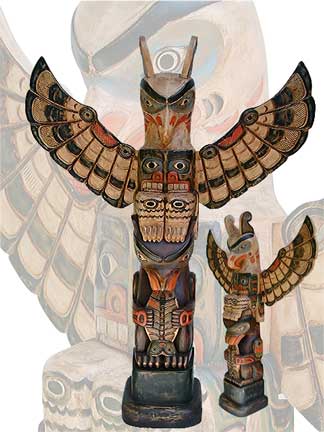You embrace the bulk of your body as it drags over the lips of unspeaking leaves. The dilatory nature of your motion suggests a travois strapped to the slick curve of your green back. You have been pulling it for days through the ice of the Yukon, positing the distance to the trading post in your elliptical head. At night you lay down your birch poles in burning fields and rest. I admire the parallel ridges in the rise of your abdomen, the way they contract with the codas in your breaths. I admire the declivity of your neck as it slopes backward, the way it never swivels to either side, the way it contents itself with the path. I admire the silent bell of your proboscis and the wide openings in your searching antennae, which assert that there's no time to speak and far too much to see. Our ways part and you inch northward in pursuit of another world.

Three Bighorn Rams at Gibson Reservoir
Backpacking. The lake smells of sulfite and honey, not a clover-honey you bottle and lick off fingers but a honey that lingers near bramble and jasper with a sugary redolence that asks of one nothing but to taste, recalls the thin-leafed essence of pinot noir or the musked honeydew scent of newsprint on a daughter's hands at breakfast. Wind-riffled waves come in low, each clambering over the next, a skyscraper built in rapid sections, notebook paper piling over two years at the corner of a credenza. About sixty feet above on a flat outcropping overlooking the canyon, three fever-yellow haunches camouflage against the marigold of winter-dried Indian paintbrushes and mountain cacti -- a troop of bighorns! One can scarcely see them as they march up the north limestone face, except for the fat black horns, keratin-spears curled twice around like Byzantine sabers. A gunpowder crack echoes down the Bob Marshall sluices. Each ram rears his two front hooves and scrabbles, almost glides, up the near pass, back legs twisting over rocks and crackle bushes as if memorized, mathematician-rote, worked it through on a chalkboard the night before, prefigured each step on the banana-wood beads of an abacus. I see their black tails flash, strobe-like, like the eyes of Monongahela lizards as they bound over the other side; the wide funnel-antlers christen their heads in the manner of jojoba berry censers, Muhajadeen turbans, or the miters of Inquisition priests chasing a quarry of heretics past Galicia, Extremadura, and La Rioja, pursuing the large wool-bearded men who will give up at last, heat-choking, on the Strait of Gibraltar. Anxious voices rise in pitch, send ululations to the Atlantic. They notch the pepper tree for a hanging post.

A Quinault Totem
Past the rivers and townships named by your nation, Hoko and Kitsap, Dickey, Dosewallips, and Duckabush, I find myself standing beside a longhouse constructed of ch'item (or "cedar trees"), a littoral dwelling insulated with cedar tar and viscous cedar resin. Faint but piquant, you can smell the milsap and salmonberry in the dawn-yellow air, and the saline sweetness of the Puget Sound, for every house in the Strait of Juan de Fuca faces the ocean -- hillocks of salt condensation form at the cusp of every window in the village, as round and white as unpolished pearls or the eyeballs of giant squid. At the end of the longhouse a totem pole erupts out of the earth with two broad whale flippers bursting from the bottom, raised and open on each side like the wings of an albatross. Climbing up the path of the carvings with my eyes, I see: an egret, a wolverine, a short man with a skillet-black nose, and, at the very top, the spotted, pocked, and sun-pale face of a baleen whale.
Suddenly I can feel myself poised at the pendulum drop of the 19th century, carrying a long thin canoe with a group of Quinault kexnaxx'el, two narrow paddles propped on my right shoulder. We put in at harbor before first light. Stroking out into the early water we find a mother whale near shore and I am the initiate, the Hokwat' who does not know how he became one of the whaling party. They tell me I must make the kill, though I do not wish to do so. They send me to the front of the canoe, suggest that I "ask of her a blessing." I say, "Friend, by your permission we wish to end the hunt." I brace my hands against the front of the boat and throw the harpoon attached to a long cable of elk sinews. The mother whale ducks underwater and thrashes in lateral thrusts, her brunting weight tipping the canoe at a precipitous angle. Rising like a coppersmith before the opening of the shop, the supererogatory palm of a crossing guard, the ancient baleen mother breaks the surface as hundreds of other men in other canoes thrust their barbed harpoon points into her back. We have done it. We row shoreward. That night they hold a festival to celebrate the hunt. The chief ties on his headdress with a silver band made of salmon scales while an old man sweeps the dancing pit in preparation. I see him sweeping in the moon-dim night, shuffling his feet in concentric circles as if he himself cannot help dancing, dancing, dancing in the glimmering light of a whale-blubber candle.
©2005 by Brent McCafferty



